

Despite significant recent advances, planning remains a fundamentally hard problem, especially when considering robotic applications with long-horizon tasks, sparse feedback, and continuous state and action spaces. Abstraction is one of the main tools we have to overcome such challenges. State abstraction allows agents to focus on the important aspects of a planning problem, and action abstraction allows agents to reason across long horizons and exploit hierarchy in task execution. Designing abstractions by hand is labor-intensive and difficult: even for an expert, it is difficult to anticipate the influence of the abstraction on planning performance. This motivates learning abstractions for efficient and effective robotic planning.
This workshop will bring together researchers from several related but often disjoint subcommunities who share an interest in learning abstractions for robotic planning. Key questions for discussion include:
This workshop comes at a pivotal time as the field works to understand the implications of large pretrained language and vision models for robotic planning. As suggested by the latter discussion questions, these foundation models will be a central workshop theme. We believe there are rich opportunities not only for foundation models to aid robotic planning, but also for robotic planning research to inform the further development of foundation models. For example, the “right objective” for abstraction learning could be used for foundation model training if those models are ultimately meant for robotic planning.
Current research on abstraction learning for robotic planning is fragmented across several subcommunities including task and motion planning, reinforcement learning (hierarchical, model-based), planning with linear temporal logic, planning with natural language, and neuro-symbolic AI. This workshop aims to create a common forum to share insights, discuss key questions, and chart a path forward. For this to succeed, we will need to establish a shared understanding of what abstraction means in the context of robot planning. This will require bridge-building between different sub-disciplines, which we will facilitate in two ways: (1) a diverse selection of papers and invited speakers; and (2) a highly interactive workshop.
We solicit papers of the following topics:
We solicit workshop paper submissions relevant to the above call of the following types:
Please format submissions in CoRL or IEEE conference (ICRA or IROS) styles. Submissions do not need to be anonymized. To authors submitting papers rejected from other conferences: please ensure that comments given by the reviewers are addressed prior to submission.
Note: Please feel free to submit work under review or accepted for presentation at other workshops and/or conferences as we will not require copyright transfer.

| Announcement and Call for Submissions | Aug 1, 2023 |
| Paper Submission Deadline | September 30, 2023 (11:59 PM UTC-12) |
| Paper Acceptance | October 13, 2023 |
| Camera-ready Version Due | November 4, 2023 (11:59 PM UTC-12) |
| Workshop | November 6, 2023 |
| Time | Session Type | Speakers | Portraits |
| 8:30 - 8:45 | Welcome | LEAP Organizers | |
| 8:45 - 9:00 |
Title: Explore to Generalize
Abstract: The importance of learning abstractions for planning is well reflected in the zero shot generalization problem in RL: how to learn a policy on a set of training tasks that will generalize well to an unseen, but similar, test task. While most previous efforts focused on learning policies that are invariant to irrelevant properties of the task, we propose a different approach. We observe that policies trained to *explore* the state space generalize well, as the exploration behavior is much harder to memorize than the actual solution to the task. We exploit this discovery in our Explore-to-Generalize (ExpGen) algorithm, which at test time takes a reward maximization action when it is certain (using a policy ensemble), or an exploration action when it is uncertain (using the generalizing exploration policy). On the popular ProcGen benchmark, ExpGen makes significant progress on difficult problems such as Maze and Heist, where previous approaches failed. Furthermore, when combined with an invariance based method, ExpGen yields new SOTA results on the full suite of ProcGen games. (based on a NeurIPS 2023 paper by Zisselman, Lavie, Soudry, and T., [link]) |
Aviv Tamar (virtual) |
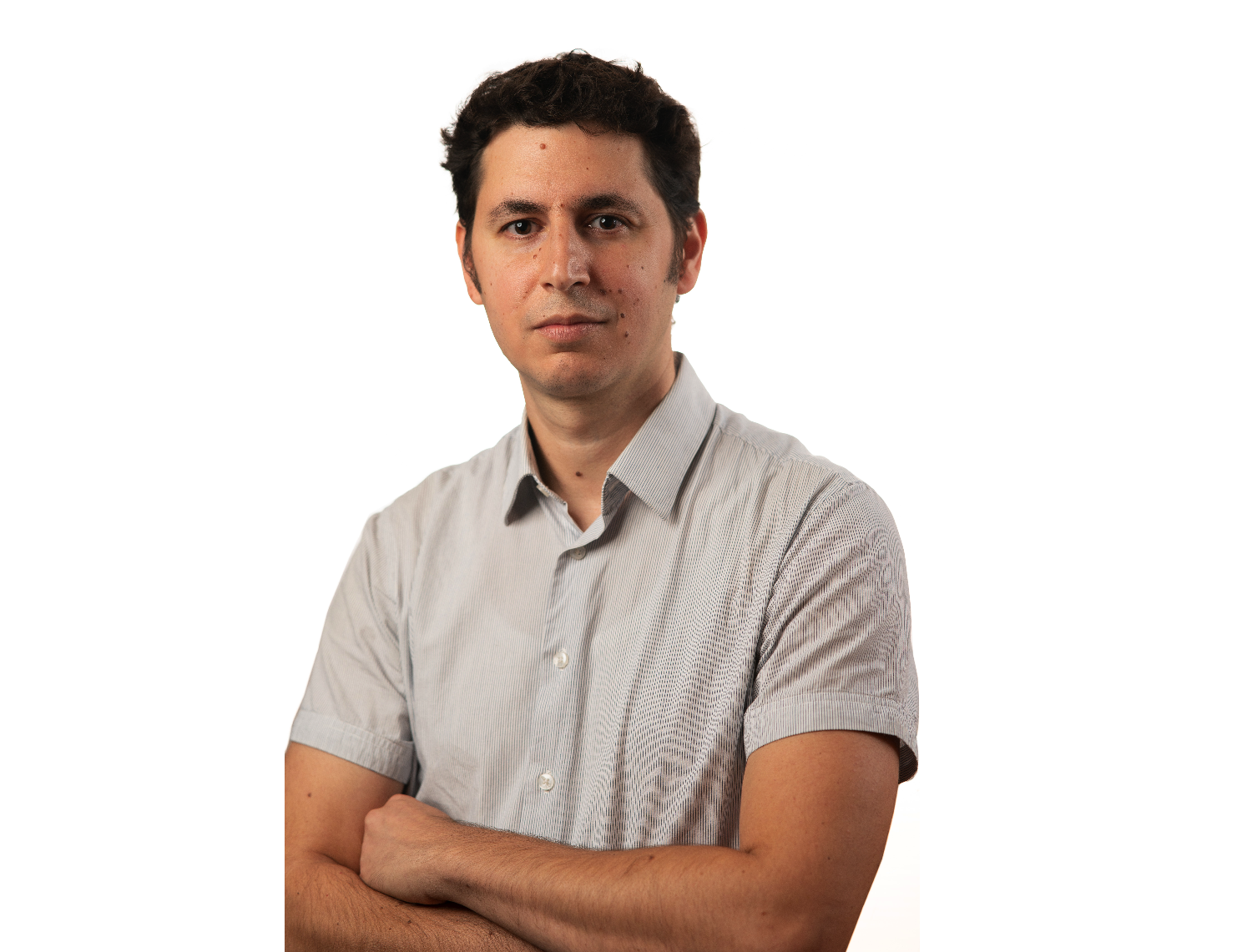
|
| 9:00 - 9:15 |
Title: Symbolic State Space Optimization: Learning Abstractions for Mobile Manipulation
Abstract: In existing task and motion planning (TAMP) research, it is a common assumption that experts manually specify the state space for task-level planning. A well-developed state space enables the desirable distribution of limited computational resources between task planning and motion planning. However, developing such task-level state spaces can be non-trivial in practice. In this paper, we consider a long horizon mobile manipulation domain including repeated navigation and manipulation. We propose Symbolic State Space Optimization (S3O) for computing a set of abstracted locations and their 2D geometric groundings for generating task-motion plans in such domains. Our approach has been extensively evaluated in simulation and demonstrated on a real mobile manipulator working on clearing up dining tables. Results show the superiority of the proposed method over TAMP baselines in task completion rate and execution time. (Joint work with Xiaohan Zhang, Yifeng Zhu, Yan Ding, Yuqian Jiang, Yuke Zhu, and Peter Stone). |
Shiqi Zhang (in person) |

|
| 9:15 - 9:30 |
Title: Transition model abstractions for efficient and reliable planning
Abstract: Though imperfect abstractions of the real world, transition models are still useful for planning. This talk explores how to use real-world data to inform in which contexts, which we call “model preconditions”, a model should be used to balance computational efficiency with robust execution. The results show that by selecting between incomplete analytical models and a simulator, a robot can achieve faster planning and more reliable execution of those plans. We also investigate how robots can efficiently collect data to most effectively plan with imperfect models, such as by adapting a learned model or learning a model precondition. |
Alex LaGrassa (in person) |
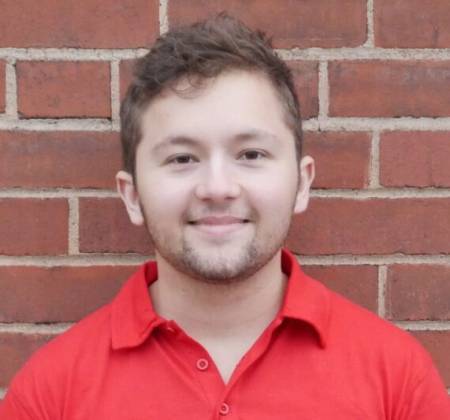
|
| 9:30 - 9:45 |
Title: Value-Based Abstractions for Planning
Abstract: As the field of robotics continues to advance, the integration of efficient planning algorithms with powerful representation learning becomes crucial for enabling robots to perform complex manipulation tasks. We address key challenges in planning, reward learning, and representation learning through the objective of learning value-based abstractions. We explore this idea via goal-conditioned reinforcement learning, action-free pre-training, and with language. By leveraging self-supervised reinforcement learning and efficient planning algorithms, these approaches collectively contribute to the advancement of robotic systems capable of learning and adapting to diverse tasks in real-world environments. |
Amy Zhang (virtual) |

|
| 9:45 - 10:30 | Panel | Aviv, Shiqi, Alex, Amy (hybrid) | |
| 10:30 - 11:00 | Coffee Break | N/A | |
| 11:00-11:15 |
Title: Interactive Task Learning
Abstract: Robots in manufacturing and households will encounter novel objects and tasks all the time. This talk focuses on teaching robots novel concepts and tasks human-robot interactions, which can include demonstrations and linguistic interactions. We will discuss challenges in teaching tasks and plannable representations to robots with human demonstrations. We will present results on the types of teaching strategies people use when teaching tasks to robots. We will then present a method that can learn visual tasks and concepts from a few in-situ interactions with a human-teacher using interactive learning. Together these approaches will shed light on the difficulties in teaching generalizable task and motion planning abstractions to a robot in a continual setting. |
Nakul Gopalan (in person) |
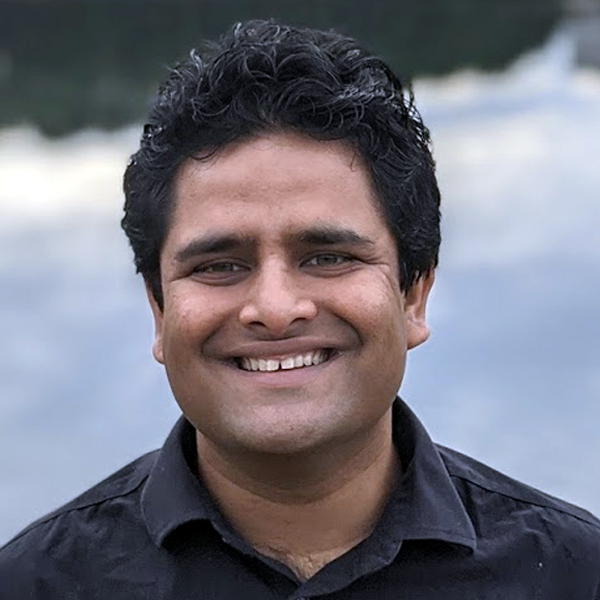
|
| 11:15-11:30 |
Title: How (temporal) reward abstractions help planning and task understanding
Abstract: Temporal reward abstractions frameworks such as linear temporal logic help with generating a compact description of acceptable trajectories of the world state. While these reward descriptions when translated to automata can help speed up planning and learning by providing a reward scaffold, this talk explores some other utilities of reward definitions using beliefs over LTL formulas. Specifically, I will talk about three use cases. First, where belief over LTL specifications can be used to generate active learning query trajectories are used to prune the belief space over task specifications efficiently, allowing the robot to learn high quality task specifications even if starting from a highly uncertain belief. Next, we demonstrate how the automata structure of the rewards can help with zero-shot policy transfer to a novel task, and finally, we demonstrate how models that translate natural language to formal specifications can leverage compositional structure to adapt to novel domains without any additional domain specific training. |
Ankit Shah (in person) |
|
| 11:30-11:45 |
Title: DeepSym: Use of Symbolic Bottleneck for Extracting High-Level Abstractions from Robots Interactions
Abstract: Symbolic planning and reasoning are powerful tools for robots tackling complex tasks. However, the need to manually design the symbols restrict their applicability, especially for robots that are expected to act in open-ended environments. Therefore symbol formation and rule extraction should be considered part of robot learning, which, when done properly, will offer scalability, flexibility, and robustness. Towards this goal, we propose a novel general method that finds action-grounded, discrete object and effect categories and builds probabilistic rules over them for non-trivial action planning. |
Alper Ahmetoglu (virtual) |

|
| 11:45-12:30 | Panel | Nakul, Ankit, Alper (hybrid) | |
| 12:30-1:45 | Lunch | N/A | 1:45-2:00 |
Generative Skill Chaining: Long-Horizon Skill Planning with Diffusion Models
Utkarsh Mishra, Shangjie Xue, Yongxin Chen, Danfei Xu |
[paper link] | 2:00-2:15 |
Universal Visual Decomposer: Long-Horizon Manipulation Made Easy
Zichen Zhang, Yunshuang Li, Osbert Bastani, Abhishek Gupta, Dinesh Jayaraman, Yecheng Jason Ma, Luca Weihs |
[paper link] | 2:15-2:30 |
NOD-TAMP: Multi-Step Manipulation Planning with Neural Object Descriptors
Shuo Cheng, Caelan Garrett, Ajay Mandlekar, Danfei Xu |
[paper link] | 2:30-2:45 |
RoboHop: Segment-based Topological Map Representation for Open-World Visual Navigation
Sourav Garg, Krishan Rana, Mehdi Hosseinzadeh, Lachlan Mares, Niko Suenderhauf, Feras Dayoub, Ian Reid |
[paper link] |
| 2:45-3:00 |
Title: Causal Dynamics Learning for Task-Independent State Abstraction
Abstract: Learning dynamics models accurately is an important goal for Model-Based Reinforcement Learning (MBRL), but most MBRL methods learn a dense dynamics model which is vulnerable to spurious correlations and therefore generalizes poorly to unseen states. We introduce Causal Dynamics Learning for Task-Independent State Abstraction (CDL), which first learns a theoretically proved causal dynamics model that removes unnecessary dependencies between state variables and the action, thus generalizing well to unseen states. A state abstraction can then be derived from the learned dynamics, which not only improves sample efficiency but also applies to a wider range of tasks than existing state abstraction methods. Evaluated on two simulated environments and downstream tasks, both the dynamics model and policies learned by the proposed method generalize well to unseen states and the derived state abstraction improves sample efficiency compared to learning without it. (Based on joint work with Zizhao Wang, Xuesu Xiao, Zifan Xu, and Yuke Zhu) |
Peter Stone (virtual) |
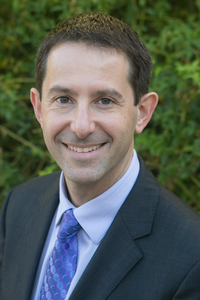
|
| 3:00-3:15 |
Title: A first-order language for effective task-specific abstractions
Abstract: Domain-specific knowledge can be leveraged to deduce task-specific abstractions for various sequential decision-making domains. In this talk, I argue the necessity of a relational, first-order language to express the domain knowledge and present a dynamic first-order conditional influence language. I will show the connection of this language with the dynamic probabilistic logic models, present an approach to deduce the task-specific abstraction using that language, and demonstrate its utility in different sequential decision-making problems.. |
Harsha Kokel (virtual) |

|
| 3:15-3:30 |
Learning Category-level Sensorimotor Primitives of Sequential Manipulation Tasks from Visual Demonstrations
Abstract: We present a new approach for learning complex robot manipulation tasks that are composed of several, consecutively executed low-level sub-tasks, given as input a few visual demonstrations. The sub-tasks consist of moving the robot’s end-effector until it reaches a sub-goal region in the task space, performing an action, and triggering the next sub-task when a pre-condition is met. The proposed system learns simultaneously low-level policies as well as high-level policies, such as deciding which object to pick next or where to place it relative to other objects in the scene. A key feature of the proposed approach is that the policies are learned without any manual annotation or postprocessing of the data. We also present a category-level learning approach that aims to acquire skills that can be generalized to new objects, with geometries and textures that are different from the ones of the objects used in the demonstrations. |
Abdeslam Boularias (virtual) |
.jpeg)
|
| 3:30-3:35 | Conclusion & Best Paper | LEAP Organizers | |
| 3:35-5:30 | Posters / Coffee | N/A |

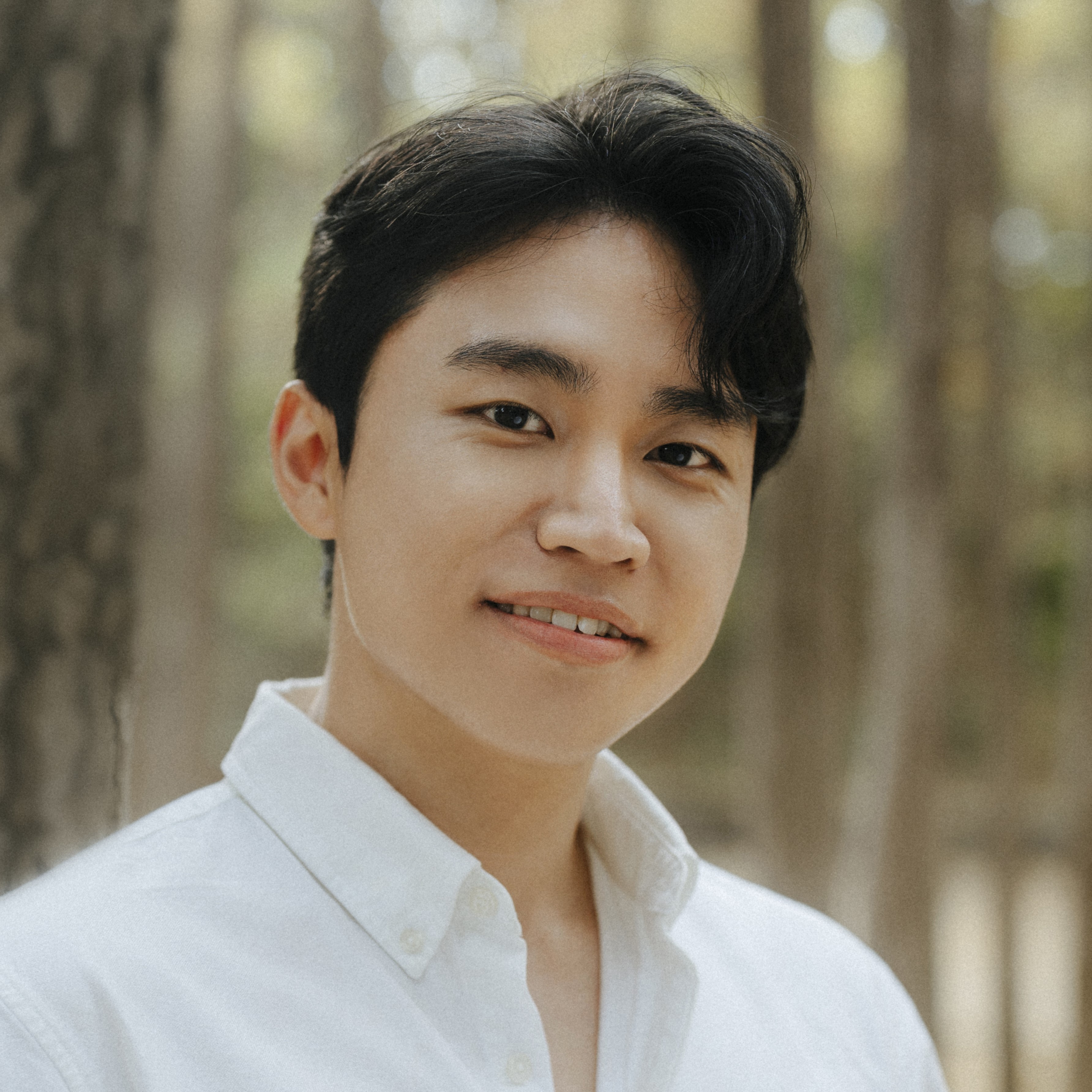




Leslie Pack Kaelbling - Massachusetts Institute of Technology, USA
George Konidaris - Brown University, USA
Siddharth Srivastava - Arizona State University, USA.